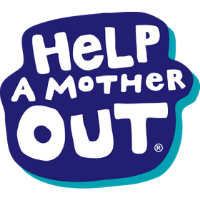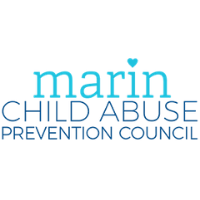
As we approach Father’s Day, we hope all dads and father-figures experience the gift of being noticed, appreciated, loved, and celebrated – every day of the year.
Dear CPI,
My partner and I just adopted two siblings – a 5-year old boy and an 8-month old girl. We’ve always wanted to be dads but we’re total newbies. Neither of us had good role models when we were growing up. We want things to be different with our kids, but we don’t know what we’re doing. Got any tips for us?
- Sergio
Dear Sergio,
Congratulations on becoming dads! Fathers and father figures play a critical role in children’s well-being, but it still takes time, practice, and patience to be the kind of dad you want to be. That’s because parenting is hard work and children don’t come with an instruction manual! Here are some tips to try:
Spend quality time with your children every day. Find moments throughout the day to give them your undivided attention and affection. Turn everyday tasks such as changing diapers, eating meals, and getting dressed into quality time by giving a hug, smiling, or talking with them. This kind of brief and frequent quality time lets your children know you love and care for them, and that you’re available when they need you. This is the foundation for positive relationships throughout life.
Do engaging activities together. This is another way to spend quality time together while encouraging learning, curiosity, creativity, and skill-building. Read books, play games, go on walks, make meals together – these are all things you can do with your children at any age that will become the basis of their happy childhood memories. Do activities that your children are interested in and follow their lead. And yes, this could mean playing endless games of peek-a-boo or reading the same book a million times. Also introduce them to activities you and your partner enjoy to expand their horizons and bond as a family.
Work as a team with your partner. Talk with your partner about the family rules and expectations that matter to both of you, including how you will handle discipline. This will help make sure you’re on the same page as a parenting team before challenges occur. Make time for you and your partner to talk and connect. It’s easy to get consumed by daily responsibilities and forget to take care of the relationship, but remember that parenting is easier and more enjoyable when you’re a strong team.
Be the role model you wish you’d had. Your children are constantly learning by watching and listening to the way you communicate with others, handle emotions, and solve problems – even when it seems like they’re not paying attention to you. Teach and model the behaviors you want your children to learn – including how to express emotions, give affection, listen, cooperate, and take care of your mental health – and they’re more likely to learn those skills, too.
Final Thoughts: Being a loving, nurturing, supportive father or father figure supports children’s self-esteem, emotional resilience, social skills, and school readiness, and increases their chances of success in school and other activities throughout life. And dads who are actively involved in their children's lives often report increased happiness and fulfillment. That’s a win-win that deserves to be celebrated!
CPI's monthly parenting article provides tips for families raising children, based on the world-renowned Triple P – Positive Parenting Program, available in Sonoma County at CPI. If you have a question or idea for a future column, please email anneb@calparents.org
This article is created by Nicole Young, the mother of two children, ages 17 and 21, who also manages Santa Cruz County's Triple P - Positive Parenting Program. Scientifically proven, Triple P is available locally through the Child Parent Institute. Our classes are listed at calparents.org/classes.
EN ESPANOL
A medida que nos acercamos al Día del Padre, esperamos que todos los papás y figuras paternas reciban regalo de ser notado, apreciado, querido y celebrado – todos los días del año.
Estimada CPI,
Mi pareja y yo acabamos de adoptar dos hermanos: un niño de 5 años y una niña de 8 meses. Siempre hemos querido ser papás, pero somos novatos totales. Ninguno de nosotros tenía buenos modelos a seguir cuando estábamos creciendo. Queremos que las cosas sean diferentes con nuestros hijos, pero no sabemos lo que estamos haciendo. ¿Tiene algunos consejos para nosotros?
- Sergio
Estimado Sergio,
¡Felicidades por convertirse en papás! Los padres y las figuras paternas tienen un rol fundamental en el bienestar de los niños, pero aun así se necesita tiempo, práctica y paciencia para ser el tipo de padre que quiere ser. ¡Eso es porque la crianza es un trabajo duro y los niños no vienen con un manual de instrucciones! Aquí hay algunos consejos para probar:
Pase tiempo de calidad con sus hijos cada día. Encuentre momentos a lo largo del día para darles su atención y afecto individualmente. Convierta las tareas diarias como cambiar pañales, comer las comidas y vestirse en tiempo de calidad al dar un abrazo, sonreír o hablar con ellos. Este tipo de tiempo breve y frecuente de calidad les permite a sus hijos saber que usted los ama y cuida, y que usted está disponible cuando lo necesitan. Esta es la base para las relaciones positivas a lo largo de la vida.
Hagan actividades interesantes juntos. Esta es otra forma de pasar tiempo de calidad juntos mientras fomentan el aprendizaje, la curiosidad, la creatividad y el desarrollo de habilidades. Lean libros, jueguen juegos, salgan a caminar, hagan comidas juntos: estas son todas las cosas que puede hacer con sus hijos a cualquier edad que se convertirán en la base de sus recuerdos felices de la niñez. Haga actividades en las que sus hijos estén interesados y siga su ejemplo. Y sí, esto podría significar jugar interminables juegos de escondidas o leer el mismo libro un millón de veces. También presénteles las actividades que usted y su pareja disfrutan para expandir sus horizontes y vincularse como familia.
Trabaje en equipo con su pareja. Hable con su pareja sobre las reglas familiares y las expectativas que les importan a ambos, incluyendo cómo manejarán la disciplina. Esto les ayudará a asegurar de que sean un equipo de crianza antes de que ocurran los desafíos. Haga tiempo para que usted y su pareja hablen y se conecten. E fácil dejarse consumir por las responsabilidades diarias y olvidarse de cuida la relación, pero recuerde que la crianza es más fácil y agradable cuando son un equipo fuerte.
Sea el modelo de conducta que desearía haber tenido. Sus hijos están aprendiendo constantemente observando y escuchando la forma en que se comunica con los demás, maneja las emociones y resuelve los problemas, incluso cuando parece que no le están prestando atención. Enseñe y modele las conductas que desea que sus hijos aprendan, incluyendo la forma de expresar emociones, dar afecto, escuchar, cooperar y cuidar su salud mental, y es más probable que también aprendan esas habilidades.
Reflexiones finales: Ser un padre o una figura paterna cariñosa que nutre y apoya la autoestima de los niños, la resiliencia emocional, las habilidades sociales y la preparación escolar aumenta sus posibilidades de éxito en la escuela y otras actividades a lo largo de la vida. Y los papás que participan activamente en la vida de sus hijos a menudo reportan una mayor felicidad y satisfacción. ¡Eso es una situación en que todos ganan que merece ser celebrada!
El artículo mensual sobre crianza de CPI proporciona consejos para las familias que crían niños, basados en el programa de crianza positiva Triple P de renombre mundial, disponible en el condado de Sonoma en CPI. Si tiene una pregunta o idea para una columna futura, envíe un correo electrónico a anneb@calparents.org
Este artículo fue creado por Nicole Young, madre de dos niños, de 17 y 21 años de edad, quien también administra el Programa de Paternidad Positiva Triple P del condado de Santa Cruz. Científicamente probado, Triple P está disponible localmente a través del Child Parent Institute. Nuestras clases se enumeran en calparents.org/classes.










